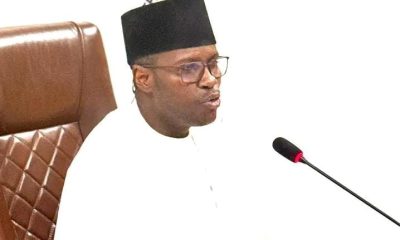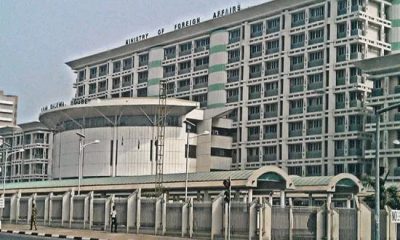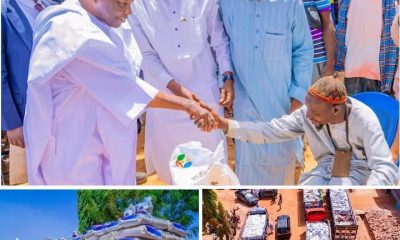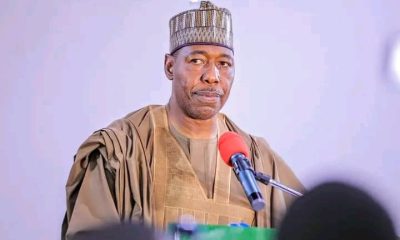National
In Conflict-Weary Malam Fatori, Borno Officials Praise Teachers Rebuilding Hope for the Next Generation
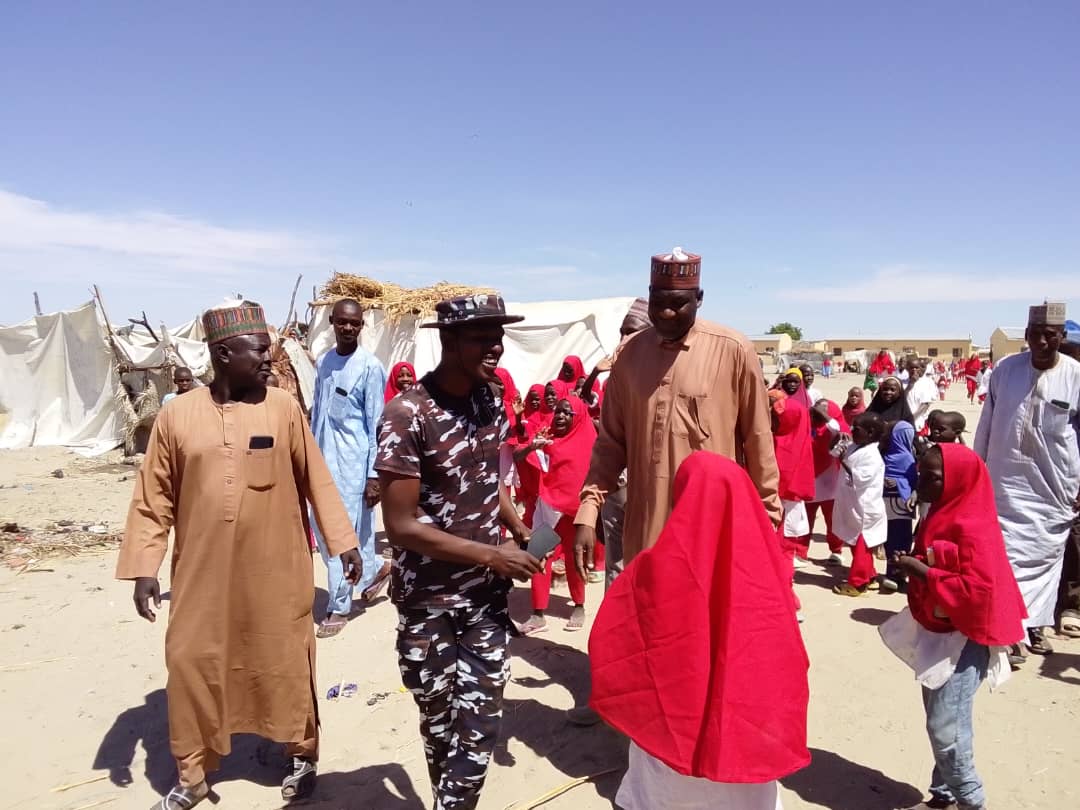
By: Adamu Aliyu Ngulde, Maiduguri, Nigeria
As the final school bell rang across the dusty courtyard of Malam Fatori Central Primary School, children rushed out in laughter, their voices echoing through a town that, not long ago, stood in silence. Among those watching the scene were two officials, Professor Usman A. Tar, Borno State’s Commissioner for Information and Internal Security, and Mohammed Aji, chairman of Mobbar Local Government Area and secretary of the Abadam local government Resettlement Committee.
The two men had come to meet with the town’s primary school teachers the frontline workers of education who have continued to teach amid uncertainty and limited resources.
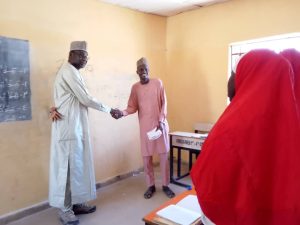
A Visit Symbolizing Renewed Hope
The visit by Commissioner Tar and Mr. Aji was part of an ongoing effort by Borno State officials to assess progress in resettled communities and engage directly with those helping rebuild daily life after years of displacement.
Malam Fatori, a border town in northern Borno State near Lake Chad, was once among the areas hardest hit by Boko Haram insurgents. The violence forced thousands of residents to flee to Niger Republic and other parts of Borno over a decade ago. For years, the town remained deserted- a haunting reminder of the human toll of Nigeria’s prolonged insurgency.
In recent years, under the leadership of Governor Babagana Umara Zulum, the state government has launched an ambitious resettlement program aimed at restoring livelihoods and rebuilding infrastructure in conflict-ravaged communities like Malam Fatori. Schools, clinics, and roads are slowly being rehabilitated. Families are returning.
‘Teaching in Hardship Is a Duty’
Commissioner Tar, whose visit was part of a broader monitoring mission across resettled communities, said the perseverance of the teachers represents a powerful symbol of local resilience.
“These teachers are doing more than instructing children- they are helping to rebuild confidence in government and in the possibility of peace,” he said. “Every lesson taught here is a message that normal life can and will return.”
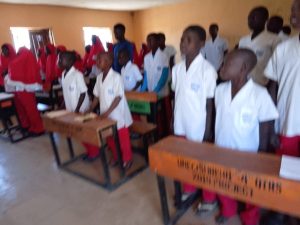
Commending Leadership and Vision
During the interaction, Mr. Aji also took the opportunity to commend Governor Babagana Umara Zulum for what he called his “tireless and visionary leadership” in the resettlement of displaced persons.
“For more than a decade, our people lived as refugees in their own country,” Mr. Aji said. “But through the governor’s commitment, we have witnessed real change- from restoring schools and health centers to providing security and shelter. His hands-on approach gives people confidence that the government cares.”
Governor Zulum, known for personally supervising reconstruction projects across Borno, has made education a central pillar of the state’s post-conflict recovery plan. His administration has built or rehabilitated hundreds of classrooms, recruited teachers, and supported local councils in reopening schools across once-deserted communities.
Building Beyond the Classroom
For the teachers of Malam Fatori, the work extends far beyond lesson plans. Many also serve as community mentors, guiding children who have known nothing but displacement and hardship.
“They are rebuilding minds and hearts,” Mr. Aji said. “We can rebuild houses and roads, but if we do not rebuild the people- especially the children- then we have not truly recovered.”
Walking back toward their convoy, the officials paused briefly to watch a group of children playing near the school’s compound-their laughter rising above the hum of the desert wind.
For a town that had endured years of fear and abandonment, such moments are no longer taken for granted.

